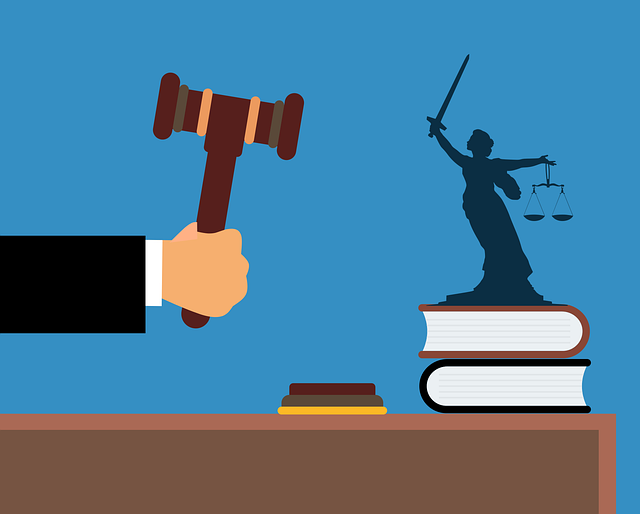Financial fraud detection in personal injury cases is crucial for justice and legal system integrity. Advanced data analytics, including machine learning, transform fraud identification by analyzing patterns and anomalies in large datasets. Key indicators are unauthorized personal info use, unusual banking activities, and suspicious communications. Organizations employ continuous monitoring and advanced analytics to proactively address potential fraud, minimizing losses and protecting individuals. Effective detection involves meticulous documentation, evidence collection, and thorough investigations. Legal implications are severe for guilty parties, with preventative measures including white-collar defense strategies by law enforcement and legal professionals. Staying vigilant and verifying claims can secure charge dismissals and prevent losses for victims throughout the Steps in a Personal Injury Lawsuit Process.
Financial fraud is a growing concern, with sophisticated schemes impacting individuals and institutions alike. This article delves into the intricate world of financial fraud detection, providing insights into understanding various types and common indicators. We explore the transformative role of data analytics in identifying fraudulent activities and highlight legal implications for personal injury cases, including preventative measures. By understanding the steps in a personal injury lawsuit process, individuals can better navigate their rights and protections against such deceptive practices.
- Understanding Financial Fraud: Types and Common Indicators
- The Role of Data Analytics in Effective Fraud Detection
- Legal Implications and Preventative Measures for Personal Injury Cases
Understanding Financial Fraud: Types and Common Indicators
Financial fraud is a complex and ever-evolving challenge that spans various forms, from identity theft to investment scams. Understanding these different types is crucial for effective detection. Identity theft involves unauthorized use of personal information for financial gain, while investment fraud encompasses schemes like Ponzi schemes or false stock promotions. Other common indicators include unusual banking activities, unexpected changes in account balances, and suspicious emails or calls claiming to be from legitimate sources.
Early recognition of these signs can significantly contribute to winning challenging defense verdicts for his clients. Organizations with an unprecedented track record in financial fraud detection leverage advanced analytics, machine learning algorithms, and continuous monitoring to identify patterns and anomalies. This proactive approach ensures that potential fraudulent activities are addressed swiftly, minimizing financial losses and protecting individuals and institutions alike.
The Role of Data Analytics in Effective Fraud Detection
The role of data analytics in financial fraud detection has become increasingly significant as we navigate an era of complex economic crimes. By leveraging advanced algorithms and machine learning techniques, financial institutions can now analyze vast datasets to identify patterns and anomalies indicative of fraudulent activities. This proactive approach allows for early intervention, which is crucial in preventing substantial losses and mitigating risks associated with white-collar offenses.
Through the steps in a personal injury lawsuit process—from initial claim assessment to all stages of investigative and enforcement—data analytics plays a pivotal role in distinguishing legitimate claims from potential frauds. By employing sophisticated models, these systems can uncover hidden connections and correlations that might otherwise go unnoticed, ensuring a more robust and accurate analysis. This capability not only enhances the effectiveness of fraud detection but also contributes to a complete dismissal of all charges in cases where no fraudulent intent exists, ultimately fostering trust and transparency in financial transactions.
Legal Implications and Preventative Measures for Personal Injury Cases
In personal injury cases, financial fraud detection plays a critical role in ensuring justice and maintaining the integrity of the legal system. The steps in a personal injury lawsuit process include meticulous documentation, evidence collection, and thorough investigations to uncover any fraudulent activities. Legal implications can be severe for individuals or entities found guilty of misrepresenting facts or fabricating claims.
Preventative measures are crucial to achieving extraordinary results in these cases. Law enforcement agencies and legal professionals employ white-collar defense strategies to combat fraud. By staying vigilant, verifying claims, and following due diligence, it’s possible to secure a complete dismissal of all charges against innocent parties and prevent financial losses for victims. This involves meticulous record-keeping, timely reporting of injuries, and consistent communication with legal representatives throughout the lawsuit process.
Financial fraud detection is a complex yet essential process, especially within personal injury cases. By understanding various types of fraud, such as identity theft and insurance scams, and leveraging data analytics for pattern recognition, legal professionals can significantly enhance their case management. This article has outlined critical aspects, including the indicators of financial fraud and the role of technology in detection, along with highlighting the important steps in a personal injury lawsuit process to mitigate risks. Legal implications and preventative measures are key to ensuring fairness and accuracy in these cases, ultimately protecting individuals and maintaining the integrity of the justice system.






